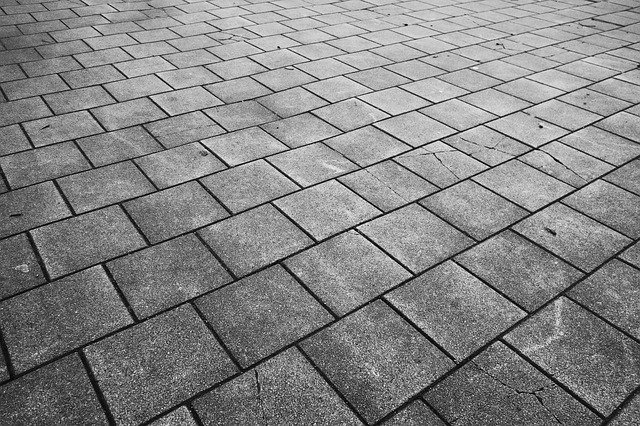No products in the cart.
How To Properly Maintain Concrete

Decorative Concrete Atlanta has been a popular choice for homeowners due to its durability and low maintenance. There is no other flooring material that requires zero maintenance, and concrete is not an exception. (Image Credit: Mabel Amber/Pixabay)
Fortunately, some companies specialize in polished concrete flooring systems to maintain your floor correctly. At allstarconcretecoating.com, you’ll find a wide range of practical solutions to enhance floors in warehouse space, retail storefronts, industrial facilities that demand a high-performance floor.
Properly maintaining your decorative concrete not only gives you a certainty that the surface would stay beautiful for the upcoming years, but it also helps you in saving money and prevent your concrete from becoming slippery. Concrete that is not properly maintained is prone to having algae and moss build-up, making the surface hazardous to everyone that passes by, slips and other accidents may happen.
If you’re using your garage as a workshop for your tools or cars, you might have a lot of stains on your concrete, either from oil, chemicals, or gas. If that’s the case, installing an epoxy floor coating in your garage is the perfect solution. Epoxy coatings will prevent accidental spills from staining your concrete, keeping your garage floor looking clean.
To ensure the safety around your property here are the ways on how you can properly maintain your concrete:
1. Be Careful in Utilizing Your Concrete
One great feature of decorative concrete is that it is resilient to any damage. However, proper care is still needed to prolong the lifespan of the material. You still need to be careful and take precautionary measures to prevent the concrete from any cracks and always make sure it is not placed under heavy pressure.
The most common cause of cracking is heavy machines or vehicles, make sure your concrete surfaces are not put under those extremely heavy materials to avoid any damages on your concrete. Concrete for residential properties is not designed to handle heavyweights.
During winter, be careful when you are shovelling snow because metal tools also cause damage to the concrete.
2. Clean Your Concrete Regularly
Though concrete is low maintenance, that doesn’t mean that regular cleaning is not needed. Cleaning your concrete on a regular basis helps in keeping the area from any algae, moss, dirt, and other debris build-ups. Unlike other materials, concrete is easy to clean, and it does not take that much time to completely clean the entire area.
You can make use of your garden hose or a push broom to easily clean the surface. There are certain times in a year where debris can quickly accumulate. Take, for example, during autumn where leaves around your property piles up.
Moss and algae can be prevented by allowing more sun exposure to your concrete. Trim some trees that shade your outdoor spaces such as patios and driveways.
3. Reseal Your Concrete Periodically
One of the best ways to keep your concrete surface beautiful, clean, and safe is to have it resealed and pressure washed by a professional. You can do this periodically once you have noticed a surmountable amount of debris build-up.
Pressure washing is a quick process; this helps in properly removing all the debris that has formed on your concrete over time. On the other hand, resealing helps in maintaining the durability and appearance of the concrete. It also protects the concrete from any cracks, stains, and other forms of damage.
4. Stains Should Be Removed Immediately
Garage and concrete driveways are prone to gasoline and oil stains; these types of stains are hard to remove even when the concrete is sealed — stains as such need to be removed immediately before it completely stays on the pavement.
Some products you can use to remove these types of stains include alkaline degreasers and powdered detergent. If you want to use powdered detergent, you have to put a thick layer on the stain for 15-20 minutes, and then scrub it with a brush.
Pressure washing can also be an option if the concrete has absorbed the oil, grease, or gasoline.
5. Avoid Using Harmful Chemicals To Your Concrete
You might not be aware that some of the products you use to your concrete may cause some damage. Concrete may be a durable material, but if it is exposed to a harmful chemical, it may easily deteriorate.
Chemicals that are harmful to concrete surfaces include de-icers. This type of chemical is often used during winter, but making use of deicers can cause surface damage because the concrete is repeatedly undergoing the thawing and refreezing process. Deicers with ammonium nitrate or sulfate can cause more harm to the concrete because it can disintegrate the concrete.
Some other chemicals in deicers that can cause damage to concrete include the following:
- Magnesium nitrate/acetate/chloride
- Calcium Chloride
- Sodium Chloride or rock salt
A newly installed concrete can be damaged by salt compared to old concrete; it is advisable to avoid exposing the concrete salt during the first year. Making use of sand during the winter season is an alternative to salt.
If your concrete has been severely damaged due to chemical exposure, a professional can surely help you repair and restore the beauty and quality of your concrete.















Leave a Reply